 Dr Haresh Tank,
Dr Haresh Tank,
Director, Station-e Language Lab
Every time university world rankings are announced, we harp on the way Indian universities lag behind in research and we have not been able to establish world class institutions. This clamour translates into a few articles on the renowned universities with higher rankings in the world order and that is all. We have yet to unearth the root cause of why Indian universities fare so badly in the university rankings. Universities are entirely different from the culture of rote learning and rat race for numbers that we celebrate at the school level. Last year,we fared equally badly in PISA rankings.It is this kind of schooling that does not develop the key competences and skills that leads the young generation of the country to institutions. While all this happens, nobody asks the key question that if students score so many marks in the university examinations and secure such wonderful grades, why are they considered unemployable by the World Bank and the market at large?
Our problem starts with the policy of higher education. It is sad to note that our policy begins and ends with increasing the GER. When GER increases, we feel we have triumphed. And what about the quality of higher education? There is a deep, meaningful silence over this at the policy level. In the era of internationalisation of education, our policy papers do not reflect any learning from the best practices of the world class institutions of the world. For instance, in China, all students whether science or arts have to compulsorily study and do well in English and Computers. They form integral part of their education because China knows that these are core skills in the 21st century. In India, even if English is offered, passing marks would do and hence, engineers and MBAs are speechless when facing an interview conducted in English.
At the level of policy, it is pertinent to note here that even countries like US and UK are also remodeling their education system because they have also lagged behind in the university rankings and they have been quick enough to respond to the fact that countries like Finland, South Korea and Germany have done remarkable work in terms of skilling their youth through higher education and this has led to the enhancement of students’ competencies and skills in a way that their students are readily employable and have the skills required for the real-life situations, unlike the rote learning we have cherished.
| In the era of internationalisation of education, our policy papers do not reflect any learning from the best practices of the world-class institutions of the world |
Skills Development Centre
With the concerns of Skills Development in view, Station-e envisaged the concept of Skills Development Centre (SDC). It is a unique construct, aiming at upskilling the youth of the country. We have established several SDCs at various educational institutions – college and university campuses across the country. SDC serves as the training wing of the university, operated in a digital learning lab and powered by highly sophisticated technology. SDC comes with in-built training programs on soft and life skills, integral to the theme of skills development and empowering the youth. Customised to the core, these modules have astonishing transformation value as they produce remarkable results in virtually no time. The youth across the country have benefitted from the innovative Skills Development Centres and have carved a niche for themselves in their chosen area of endeavour.










 How is your University addressing employability concerns?
How is your University addressing employability concerns?  While private universities are growing by leaps and bounds, a crucial aspect that remains unchanged is the recognition of the university by some authorised regulatory body. Almost in every inspection done by UGC, an entire list of fake universities get unearthed emphasising on the need for academically recognised universities. We have given maximum weightage to National Assessment and Accreditation Council (NAAC) accredited universities and used the number of courses and departments in the university to validate the scores.
While private universities are growing by leaps and bounds, a crucial aspect that remains unchanged is the recognition of the university by some authorised regulatory body. Almost in every inspection done by UGC, an entire list of fake universities get unearthed emphasising on the need for academically recognised universities. We have given maximum weightage to National Assessment and Accreditation Council (NAAC) accredited universities and used the number of courses and departments in the university to validate the scores.
 Prof Michael Thorne, Vice Chancellor, Anglia Ruskin University shares his opinion on Foreign Universities Bill in an interview with Mohd Ujaley.
Prof Michael Thorne, Vice Chancellor, Anglia Ruskin University shares his opinion on Foreign Universities Bill in an interview with Mohd Ujaley.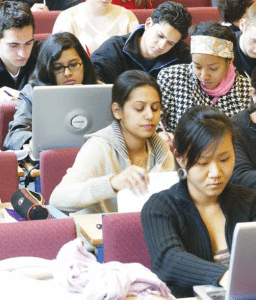
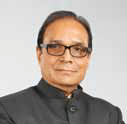 Rajendra Kumar Pandey,
Rajendra Kumar Pandey,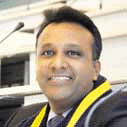
 Dr A S Zadgaonkar,
Dr A S Zadgaonkar, Prof Vijay Kant Verma,
Prof Vijay Kant Verma,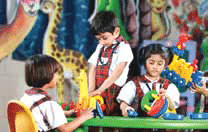



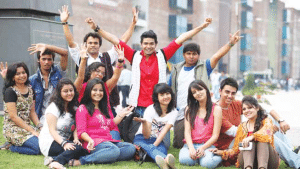 With students from 26 countries and tie-ups with over 35 international universities, Lovely Professional University has now consolidated its position and reputation the world over. Ashok Mittal, Chancellor, Lovely Professional University, sheds light on various initiaves taken by the university to create a new benchmark
With students from 26 countries and tie-ups with over 35 international universities, Lovely Professional University has now consolidated its position and reputation the world over. Ashok Mittal, Chancellor, Lovely Professional University, sheds light on various initiaves taken by the university to create a new benchmark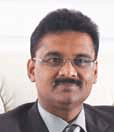 Our focus is not only limited to classroom teaching or theoretical knowledge but we propel students to think on how that acquired learning can be put to practical use, yielding applied gains. Thus, they are driven to add to the existing knowledge base, thereby raising the possibility of research on the mentioned subject. Furthermore, LPU now has a dedicated Research and Development centre of its own. We offer more than 200 programmes ranging from diploma, undergraduate, graduate, post-graduate and doctoral.
Our focus is not only limited to classroom teaching or theoretical knowledge but we propel students to think on how that acquired learning can be put to practical use, yielding applied gains. Thus, they are driven to add to the existing knowledge base, thereby raising the possibility of research on the mentioned subject. Furthermore, LPU now has a dedicated Research and Development centre of its own. We offer more than 200 programmes ranging from diploma, undergraduate, graduate, post-graduate and doctoral.
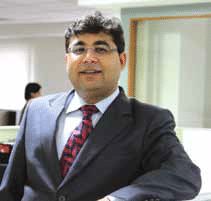 There is a big shift in the classrooms of today with the intervention of technology. Beas DevRalhan, CEO, Next Education, highlights latest digital classroom solutions available for schools.
There is a big shift in the classrooms of today with the intervention of technology. Beas DevRalhan, CEO, Next Education, highlights latest digital classroom solutions available for schools. Lesson plans
Lesson plans Interactive content
Interactive content
 Next Dictionary
Next Dictionary Next Tools
Next Tools CCE assessments
CCE assessments Question bank/Test creator/
Question bank/Test creator/ Library resources
Library resources











